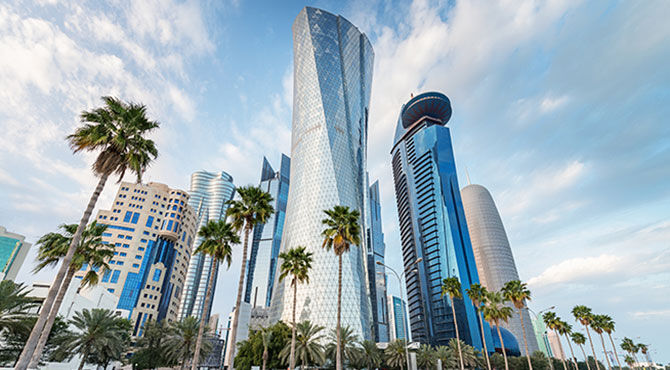Quandary for expats as states sever Qatar ties
Global companies are trying to determine the ramifications for overseas assignees after seven nations, led by Saudi Arabia, severed ties with Qatar after accusing it of backing terrorist groups in concert with Iran.

Closed airspace
Saudi Arabia has closed its airspace to Qatar and both Etihad and Emirates airlines ceased all services on Tuesday. Qatari diplomats are being ejected and Qatari citizens have been ordered to leave the Gulf states within 14 days.Although Qatar has vast natural gas resources, the immediate affect of what is, in effect, a blockade by the other states could be profound, not least because Qatar imports half of its food supplies across the land border with Saudi Arabia.The Financial Times commented, “The closure is also likely to affect the construction industry and threaten Doha’s ability to prepare for the 2022 football World Cup.“Riyadh and Abu Dhabi also said they would seek legal measures to stop other friendly parties using their airspace to reach Doha, but details of any attempt to tighten the blockade have not emerged.“If the dispute deepens, Qatar’s supply of natural gas to neighbouring UAE via the Dolphin pipeline could be halted, cutting a third of the UAE’s supply as demand for power spikes in the hot summer months.”Related news:
- Latest insights on Dubai's booming private school sector
- Nationwide: house price growth in UK continues to stutter
- Turkey's turmoil sees outflow of skilled workers into Europe
Political and economic implications
Ehsan Khoman, from Mitsubishi UFJ Financial Group (MUFG), said in a research note that the diplomatic crisis between Qatar and its neighbours could have serious political and economic implications.“Whilst the GCC has been hit by severe internal turmoil in the recent past (revival of memories of a similar spat in May 2014, when Saudi Arabia, the UAE and Bahrain united against Qatar for its support of the Muslim Brotherhood and severed ties for eight months), the current wave is particularly worrying.“Indeed, a divided GCC will bring further instability in the region at a time of full confrontation between the Saudi-led alliance and Iran. A possible thaw between Iran and Qatar could, in theory, lead to a confrontation with the US, as the latter has an immense military base currently in the GCC (most notably in Qatar where the country hosts the largest US military presence in the GCC). Thus, a rapprochement between Iran and Qatar would be a vast security risk to the US military.”On the closure of transport links, MUFG said there could be “surmountable implications for the airlines, shipping and road freight industries”.The UK could be particularly harmed should the dispute lead to Qatar curtailing some of its overseas investments. The Qatar Investment Authority has so far invested some £40 billion in British infrastructure, property and financial services and, in the wake of the triggering of the process for the UK to leave the European Union earlier this year, the Qatari prime minister said he expected a further £5 billion to be invested in Britain over the next five years.“This small Gulf state has long been a core supplier of energy to the UK – it accounts for as much as 90 per cent of Britain’s imports of liquefied natural gas. But, especially in the years since the 2008 financial crisis, it has also become a disproportionately important financial investor,” added the Financial Times.For related news and features, visit our Enterprise section.Access hundreds of global services and suppliers in our Online Directory Get access to our free Global Mobility Toolkit
Get access to our free Global Mobility Toolkit 
©2024 Re:locate magazine, published by Profile Locations, Spray Hill, Hastings Road, Lamberhurst, Kent TN3 8JB. All rights reserved. This publication (or any part thereof) may not be reproduced in any form without the prior written permission of Profile Locations. Profile Locations accepts no liability for the accuracy of the contents or any opinions expressed herein.
































